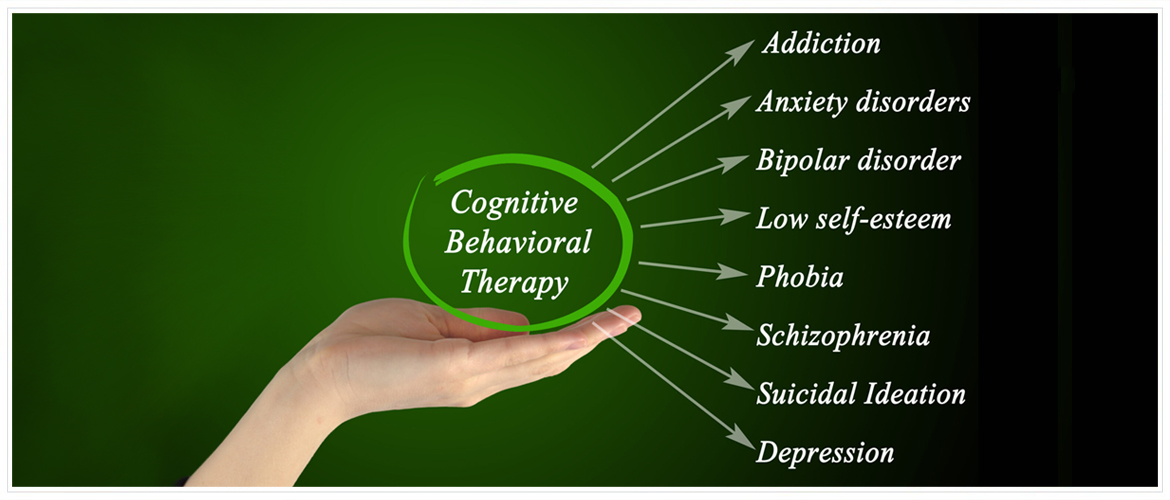
Cognitive Behavioral Therapy (CBT)
Introduction
In today's fast-paced and demanding world, maintaining good mental health is essential for overall well-being. Cognitive Behavioral Therapy (CBT) has emerged as a highly effective therapeutic approach for addressing various mental health challenges and promoting mental wellness. In this article, we will delve into what CBT entails, its core principles, and the range of conditions it can effectively address.What is Cognitive Behavioral Therapy (CBT)?
Cognitive Behavioral Therapy, often abbreviated as CBT, is a widely practiced and evidence-based psychotherapy approach. CBT is grounded in the belief that our thoughts, feelings, and behaviors are interconnected and influence one another. This therapy aims to help individuals identify and modify unhelpful thought patterns and behaviors to improve their emotional well-being and overall quality of life.
The Core Principles of CBT
- Cognitive Restructuring - CBT focuses on identifying and challenging negative thought patterns and cognitive distortions. Clients work to replace these distortions with more balanced and rational thoughts.
- Behavioral Activation - This principle encourages individuals to engage in positive and fulfilling activities, even when they don't feel like it. By doing so, they can break the cycle of depression and increase motivation.
- Exposure Therapy - For anxiety-related disorders, CBT often involves gradual exposure to feared situations or objects. This helps individuals confront their fears and reduce anxiety over time.
- Skill Building - CBT equips individuals with practical skills and coping strategies to manage stress, anxiety, and other emotional challenges effectively.
- Homework and Self-Monitoring - Clients are often assigned homework between sessions to practice newly acquired skills and monitor their progress. This active involvement contributes to therapeutic success.
Conditions CBT Can Help Address
Cognitive Behavioral Therapy has demonstrated its effectiveness in treating a wide range of mental health conditions, including:
- Depression - CBT is like a helpful tool that teaches people to notice and change their negative thoughts and behaviors that make them feel really sad. It also gives them special ways to feel more in control and hopeful again.
- Anxiety Disorders - CBT provides tools to manage anxiety by identifying and challenging anxious thought patterns. Exposure therapy, a component of CBT, is particularly effective for specific phobias and obsessive-compulsive disorder (OCD).
- Panic Disorder - CBT assists individuals in understanding and managing panic attacks by addressing the catastrophic thinking associated with them.
- Post-Traumatic Stress Disorder (PTSD) - CBT techniques, such as exposure therapy and cognitive restructuring, are utilized to help individuals process traumatic experiences and alleviate distressing symptoms.
- Compulsive Disorder (OCD) - CBT helps individuals confront and manage obsessions and compulsions by gradually exposing them to feared situations while modifying compulsive behaviors.
- Substance Abuse - CBT is instrumental in addiction treatment by identifying triggers and teaching coping skills to maintain sobriety.
- Eating Disorders - In the case of conditions such as binge eating and bulimia nervosa, Cognitive Behavioral Therapy (CBT) focuses on addressing distorted body image issues and aiding individuals in cultivating healthier perspectives and behaviors related to eating.
Conclusion
Cognitive Behavioral Therapy (CBT) stands as a highly effective therapeutic approach for addressing a wide spectrum of mental health challenges. By focusing on the interplay between emotions, behaviors, and thoughts, CBT helps individuals to take control of their mental well-being. Depression: Cognitive Behavioral Therapy (CBT) assists people in identifying and altering harmful thought patterns and behaviors that play a role in causing depression. Through CBT, individuals are equipped with strategies aimed at restoring a sense of empowerment and optimism in their lives. Contact Attend Mental Health to determine the best treatment plan tailored to your specific needs and circumstances.Back to Our Treatment Focus
